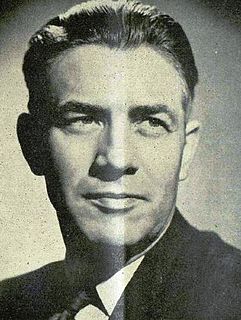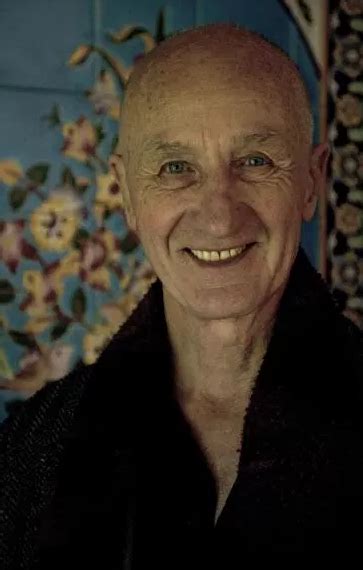A Quote by Edward Gibbon
Yet the experience of four thousand years should enlarge our hopes, and diminish our apprehensions: we cannot determine to what height the human species may aspire in their advances towards perfection; but it may safely be presumed, that no people, unless the face of nature is changed, will relapse into their original barbarism.
Related Quotes
...I believe deeply that we canot solve the challenges of your time unless we solve them together - unless we perfect our union by understanding that we may have differnt stories, but we hold common hopes; that we may not look the same and we may not have come from the same place, but we all want to move in the same direction - towards a better future for our children and our grandchildren. This belief comes from my unyielding faith in the decency and generosity of the American people.
It is indeed remarkable that the nature of our dealings with our fellowmen will determine, in large measure, our status in the kingdom of heaven....We may attend to rites and rituals and yet overlook the weightier matters such as brotherly kindness, honesty, mercy, virtue, and integrity. Let us never forget that if we omit them from our lives we may be found unworthy to come into His presence.
You can clear the land, plow the field, spread the fertilizer, and plant the corn. But you cannot make it rain. You cannot prevent an early frost. You cannot determine exactly what will happen in your life. The rain may or may not fall, but one thing is certain: you will get a harvest only if you planted something in the field. It's important to do everything in our power to ensure our success, but we also need to let the universe take its course.
So it persists, for many of us, hunger channeled into some internal circuitry of longing, routed this way and that, emerging in a thousand different forms. The diet form, the romance form, the addiction form, the overriding hunger for this purchase or that job, this relationship or that one. Hunger may be insatiable by nature, it may be fathomless, but our will to fill it, our often blind tenacity in the face of it, can be extraordinary.
Our future may lie beyond our vision, but it is not completely beyond our control. It is the shaping impulse of America that neither fate nor nature nor the irresistible tides of history, but the work of our own hands, matched to reason and principle, that will determine our destiny. There is pride in that, even arrogance, but there is also experience and truth. In any event, it is the only way we can live.
Our generation may stand at a crucial breakpoint in history, for we in the presently affluent nations may be the last who can afford to open up the high frontier. What we do during the next ten or twenty years may determine whether future generations will live in a humane and rewarding society, or whether they will spend their lives in desperate contention for the dwindling sustenance afforded by our limited terrestrial resources.
The planet earth has a life span of eight billion years, give or take a few million. People have been around for approximately forty thousand years-a virtual blink in the cosmos. It is sad that we as a species are ravaging the natural world so fast that we are jeopardizing our survival. If we wipe ourselves out, it would be the height of folly, but the earth will survive even us. It will eventually restore itself. It might take a few thousand years, and it won't be just as it was before, but its life is stronger than death.
This question of love begins and ends with the willingness to be welcoming to one's own experience as a loving action towards oneself. It may be dark, it may be light, it may be joyous, it may be sorrowful, but it's your experience, and therefore, your life. As we have that kind of loving response towards our own life, then life itself in terms of the outside world, begins to feel different.
Unexplained pain may sometimes direct our attention to something unacknowledged, something we are afraid to know or feel. Then it holds us to our integrity, claiming the attention we withhold. The thing which calls our attention may be a repressed experience or some unexpressed and important part of who we are. Whatever we have denied may stop us and dam the creative flow of our lives. Avoiding pain, we may linger in the vicinity of our wounds, sometime for many years, gathering the courage to experience them.
It is obvious that art cannot teach anyone anything, since in four thousand years humanity has learnt nothing at all. We should long ago have become angels had we been capable of paying attention to the experience of art, and allowing ourselves to be changed in accordance with the ideals it expresses. Art only has the capacity, through shock and catharsis, to make the human soul receptive to good. It’s ridiculous to imagine that people can be taught to be good…Art can only give food – a jolt – the occasion – for psychical experience.
There is nothing in the nature of a miracle that should render it incredible:;: its credibility depends upon the nature of the evidence by which it is supported. An event of extreme probability will not necessarily command our belief unless upon a sufficiency of proof; and so an event which we may regard as highly improbable may command our belief if it is sustained by sufficient evidence. So that the credibility or incredibility of an event does not rest upon the nature of the event itself, but depends upon the nature and sufficiency of the proof which sustains it.
As the people are the only legitimate fountain of power, and it is from them that the constitutional charter, under which the several branches of government hold their power, is derived, it seems strictly consonant to the republican theory, to recur to the same original authority, not only whenever it may be necessary to enlarge, diminish, or new-model the powers of the government, but also whenever any one of the departments may commit encroachments on the chartered authorities of the others.
But that Franklin trip changed me profoundly. As I believe wilderness experience changes everyone. Because it puts us in our place. The human place, which our species inhabited for most of its evolutionary life. That place that shaped our psyches and made us who we are. The place where nature is big and we are small.







































